preacher boy was a conjure man
What Sinners Teaches Us About The Past, The Crossroads and The Blues (Spoilers Ahead)
See, I love ya’, Poppa. You did all you could do.
They say the truth hurts, so I lie to you.
Yes, I lied to you. I love the blues.
At its heart, Sinners is about legacy.
And when we finally see Sammie “Preacher Boy” Moore play the blues at the juke joint, it’s like his fingers were remembering something older than his body.
I knew what I was looking at.
That child is a conjure man.
And the juke joint is a crossroads.
Let me tell you why.
The Delta Blues Tradition Casts a Long Shadow
Preacher Boy’s character is based on famed bluesman Robert Johnson. Folklore says that Johnson traveled to an intersection near Clarksdale, Mississippi, where Highways 61 and 49 meet. There, he encountered a mysterious figure. Some say the figure was the Devil, others say it was Papa Legba. According to legend, Robert Johnson traded his soul for mastery of the blues guitar. Over time, this story became the quintessential American tale of a Faustian bargain at the crossroads.
Sinners resurrects this lore when Sammie steps into the juke joint. His rendition of I Lied to You is the beginning of his crossroads ritual. As his fingers strike the strings, time crumples like discarded sheet music. The air thrums as ancestors tear through the veil.
Sammie’s "lie" —I love ya’, Poppa... but I love the blues— becomes a sacred confession. His love for this so-called “devil’s music” opens a portal where diaspora kin — Black, Asian, past, future — gather in collective remembrance.
African mask dancers materialize beside Afrofuturist guitarists. Peking Opera performers enact Journey to the West alongside West Coast DJs spinning vinyl. City Girls-style twerkers dance among Sammie and the townsfolk. This imagery conjures a future for Sammie and a history for us, the watchers.
For two-and-a-half minutes, we are hurled through space time in a single, fluid take. History does not unfold here. It collides.
The Juke Joint as Crossroads
Blues, it wasn’t forced on us like that religion. We brought it with us from home. It’s magic, what we do. It’s sacred and BIG.
- Delta Blues
If Sammie is a conjure man channeling Robert Johnson’s legacy, then the juke joint becomes a crossroads through his ritual. That transformation is carved into every line of I Lied to You, where lyrics and space work together to reanimate a mythic bargain.
When Sammie growls, You threw me a Bible on that Mississippi road, he frames the church as forced inheritance. The Blues, by contrast, is chosen. I was just a boy tells us that this music raised him when scripture could not.
The call-and-response chant, hey, hey, hey, mirrors a preacher’s cadence. But the erotic plea take me in your arms reclaims the body as sacred. The church may demand chastity, but Sammie’s blues sanctifies desire. The juke joint becomes a place where flesh and spirit meet without shame.
When Sammie’s fingers blur into double-exposure during his solo, we are witnessing the contract’s fulfillment. The blues become both sacrifice and salvation.
What the Church Couldn’t Give Him
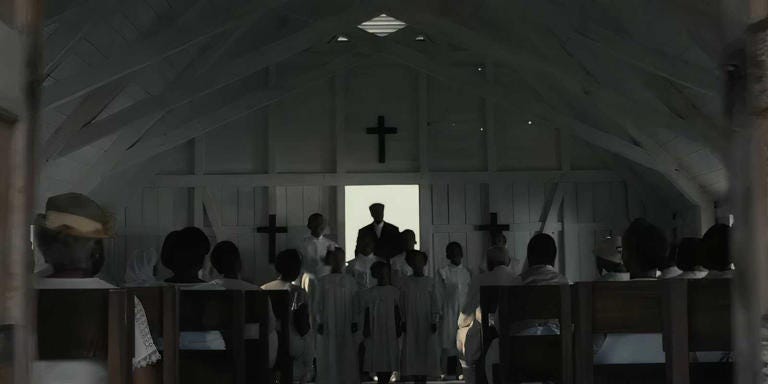
Sammie is short for Samuel.
And if you’ve ever spent time in the Bible, or had it thrown at you like Sammie did, you’ll remember that Samuel was a prophet. A child called by God in the middle of the night, raised in the temple but anointed to disrupt it.
In the book of 1 Samuel, the boy hears God calling three times and doesn’t recognize the voice. It’s only when Eli, the old priest, tells him how to listen that he finally answers: Speak, Lord, for your servant is listening.
That story is often preached as a lesson in obedience. But what if it’s really about discernment?
Because Sammie Moore isn’t just listening to one voice.
He’s got his daddy’s God on one shoulder, the ghosts of the blues on the other, and a whole ancestral choir humming in the room. His “call” comes through rhythm. Through sweat. Through a portal only he can open.
Preacher Boy’s father threw him a Bible and a warning:
Keep dancin’ with the Devil, and one day he gonna follow you home. That warning reveals a theology built on transaction. You suffer now so you can be saved later. You earn favor by obedience. You deny desire and call it faith. You submit and call it power.
But the crossroads doesn't work like that. The crossroads deals in now.
Churches are built around hierarchy.
But the juke joint pulses with circular energy — guitarist to dancers to ceiling to floorboards. Sammie’s offering is the raw, unfiltered truth of his blues.
In return, the juke joint responds.
Flames erupt as he pleads, Somebody take me in your arms. Crimson light floods the room, echoing the rust-red soil of Clarksdale, and the blood soaked into the building’s floorboards. The juke becomes sacred ground.
And then Remmick appears.
Remmick is a vampire who feeds on stolen legacy. He craves what he cannot earn. He longs to connect with his own ancestors, for some thread to pull him through time. But the best he can do is stand outside in cold, jealous blue while the juke joint burns hot with life.
Remmick is not repelled by the Blues. He is starving for it.
When Sammie croons, No shit, country boy. Same war, he names him. Remmick is not unique. He is just the latest in a long line of soul-thieves: slave traders, klansmen, record executives, colonizers, vampires.
This is the truth behind dancing with the devil. There is danger in the music. There is danger in the church. There is danger in the hunger of those who crave the magic but lack the memory.
But only if you don’t know whose voice is calling out to you. Only if you invite the danger inside.
Where the biblical Samuel anointed new kings, this Sammie dethrones the old ones. He tells Remmick, the vampire of soul and sin, you don’t get to own this. This sound. This legacy. This body.
So yes, Sammie a Preacher Boy. But not the kind his father imagined. Sammie is a prophet of the juke joint.
By the film’s end, we see the proof.
Elder Sammie, depicted by real world Blues legend, Buddy Guy, is not a preacher or a politician. He does not build a monument or a church. He owns a blues club. Naturally.
What is your crossroads? Have you ever stood at the edge of something sacred, knowing it asked more of you than the world would ever understand?
I’m curious what rituals, spaces, or memories have called your ancestors forward. Feel free to share them in the comments. We are the keepers of the portal too.
That is the real victory. Not immortality. Legacy.
Sammie didn’t run from the crossroads.
He built a temple on top of it.
Is sovereignty the sin?
Sinners gives visual and sonic language to questions we have carried, but rarely voiced out loud:
What did we lose when our spiritual traditions were called demonic?
What parts of ourselves did we bury to survive?
And what happens when we call those parts back?
Watching Sammie conjure with Delta Blues, teaches what it means to stand in power without the approval of the church, the state, or white supremacy. Hoodoo is not evil. Neither is the blues. These are ancestral technologies. Survival strategies. And the film says plainly: you do not need permission to reclaim them.
During his performance, Sammie becomes something most of us weren’t told we could be: spiritually sovereign. Not bound by doctrine like his Daddy, or by profit like the SmokeStack brothers. Not afraid of being too sensual, or too talented or too Black. Sammie is whole.
And for Black folx who’ve had to hold the contradictions of sin, scripture and self the scene is an invitation.
When you find yourself at the crossroads, what deities will you call? What deals will you make? What portals will you open?
Love y’all. Mean it. If you love me back, Buy Me A Book!





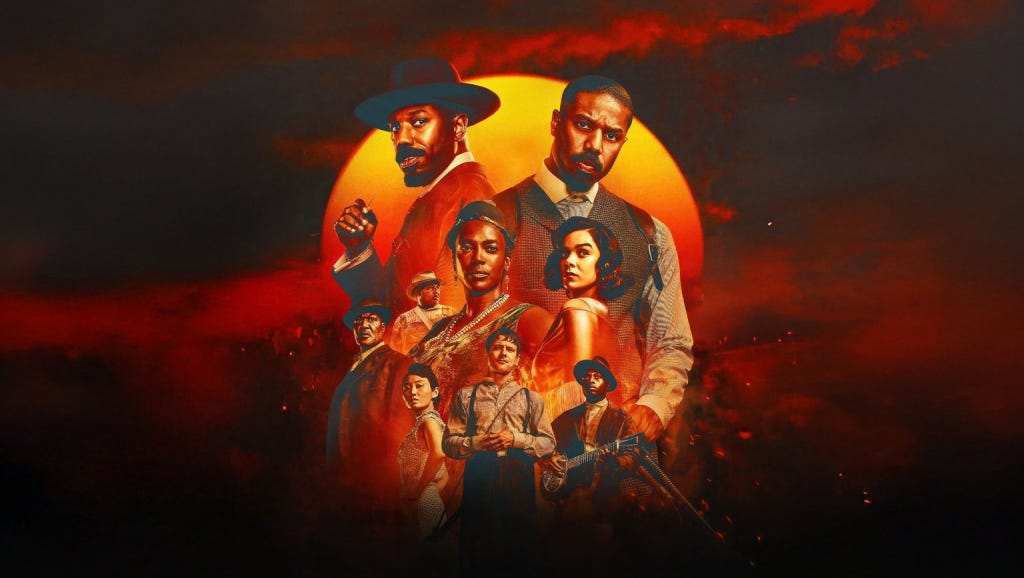
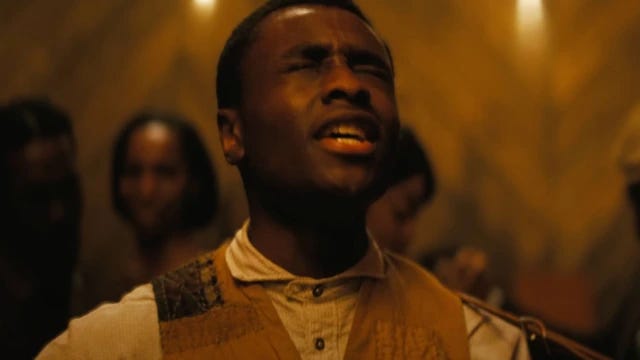

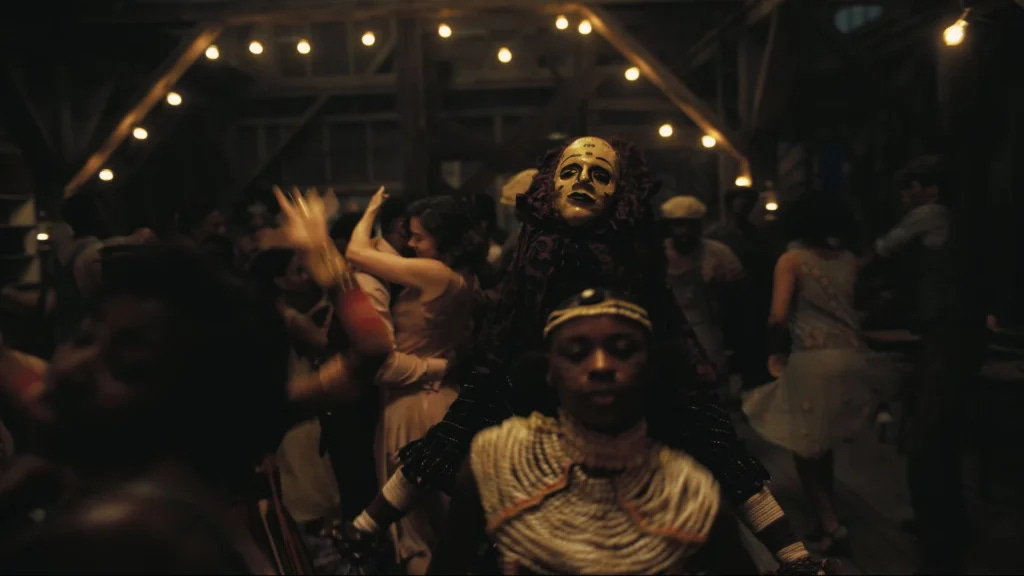

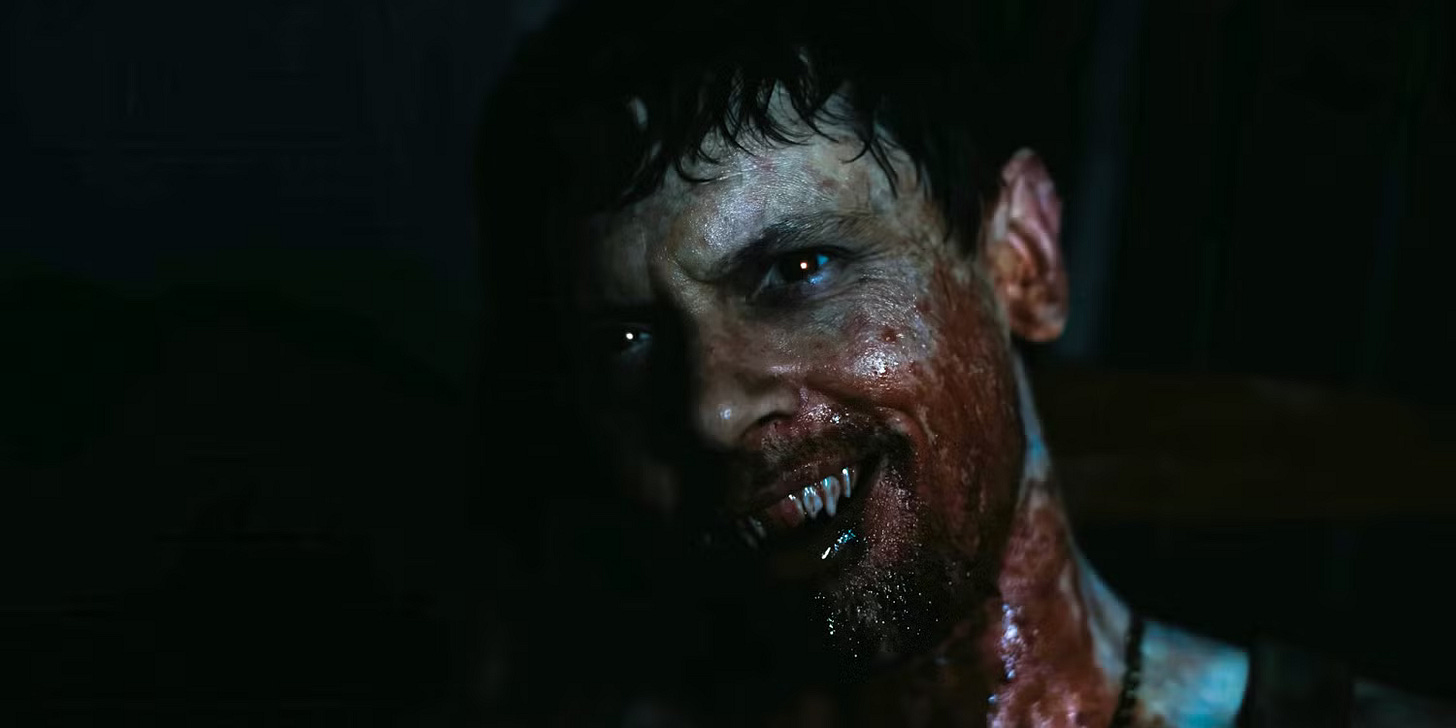


The spiritually sovereign part was such a bar!! As well as the part about circular energy. A great piece!
WOW!! You Nailed it exposing the many Layers of this Movie....it Feels So Authentic to me because I have a Healthy Respect for Conjure etc. It was 'Our Way' BEFORE Brainwashing & Whitewashing Our Heritage was Implemented. I am of Native American Chickasaw Heritage my Grandfather was a Shaman back in Oklahoma....I have a Deep Respect for Keepers of Our Mysticism & Spirituality.